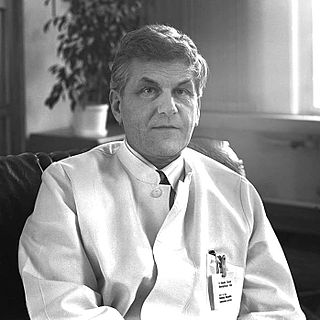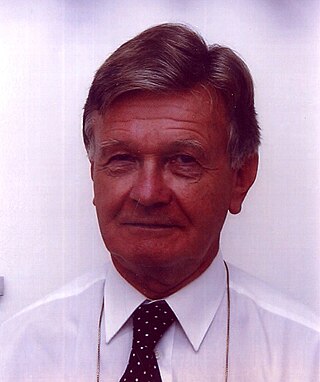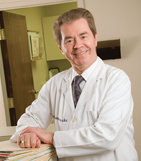
Andrzej Tadeusz Bonawentura Kościuszko was a Polish military engineer, statesman, and military leader who then became a national hero in Poland, the United States, Lithuania, and Belarus. He fought in the Polish–Lithuanian Commonwealth's struggles against Russia and Prussia, and on the U.S. side in the American Revolutionary War. As Supreme Commander of the Polish National Armed Forces, he led the 1794 Kościuszko Uprising.
A radioallergosorbent test (RAST) is a blood test using radioimmunoassay test to detect specific IgE antibodies in order to determine the substances a subject is allergic to. This is different from a skin allergy test, which determines allergy by the reaction of a person's skin to different substances.

Wacław Szybalski was a Polish-American medical researcher, geneticist and professor of oncology at the McArdle Laboratory for Cancer Research, University of Wisconsin–Madison Medical School.
The National Institute of Allergy and Infectious Diseases is one of the 27 institutes and centers that make up the National Institutes of Health (NIH), an agency of the United States Department of Health and Human Services (HHS). NIAID's mission is to conduct basic and applied research to better understand, treat, and prevent infectious, immunologic, and allergic diseases.

Hilary Koprowski was a Polish virologist and immunologist active in the United States who demonstrated the world's first effective live polio vaccine. He authored or co-authored over 875 scientific papers and co-edited several scientific journals.

Victor Henderson Ashe II is an American former diplomat and politician who served as United States Ambassador to Poland. From 1987 to 2004, he was mayor of Knoxville, Tennessee. Ashe is a Republican. Ambassador Ashe concluded his service as Ambassador to Poland on September 26, 2009.
Tick-borne diseases, which afflict humans and other animals, are caused by infectious agents transmitted by tick bites. They are caused by infection with a variety of pathogens, including rickettsia and other types of bacteria, viruses, and protozoa. The economic impact of tick-borne diseases is considered to be substantial in humans, and tick-borne diseases are estimated to affect ~80 % of cattle worldwide. Most of these pathogens require passage through vertebrate hosts as part of their life cycle. Tick-borne infections in humans, farm animals, and companion animals are primarily associated with wildlife animal reservoirs. Many tick-borne infections in humans involve a complex cycle between wildlife animal reservoirs and tick vectors. The survival and transmission of these tick-borne viruses are closely linked to their interactions with tick vectors and host cells. These viruses are classified into different families, including Asfarviridae, Reoviridae, Rhabdoviridae, Orthomyxoviridae, Bunyaviridae, and Flaviviridae.

Stanley Alan Plotkin is an American physician who works as a consultant to vaccine manufacturers, such as Sanofi Pasteur, as well as biotechnology firms, non-profits and governments. In the 1960s, he played a pivotal role in discovery of a vaccine against rubella virus while working at Wistar Institute in Philadelphia. Plotkin was a member of Wistar’s active research faculty from 1960 to 1991. Today, in addition to his emeritus appointment at Wistar, he is emeritus professor of Pediatrics at the University of Pennsylvania. His book, Vaccines, is the standard reference on the subject. He is an editor with Clinical and Vaccine Immunology, which is published by the American Society for Microbiology in Washington, D.C.

The marka was the currency of the Kingdom of Poland and of the Republic of Poland between 1917 and 1924. It was subdivided into 100 Fenigów, like its German original after which it was modelled.

The Medical University of Warsaw is one of the oldest and the largest medical schools in Poland. The first academic department of medicine was established as far back as two centuries ago in 1809. It is considered to be one of the most prestigious and reputable schools nationally for the medical sciences, partly due to its affiliation with a number of large hospitals in Poland.

For our freedom and yours is one of the unofficial mottos of Poland. It is commonly associated with the times when Polish soldiers, exiled from the partitioned Poland, fought in various independence movements all over the world. First seen during a patriotic demonstration to commemorate the Decembrists, held in Warsaw on January 25, 18311, it was most probably authored by Joachim Lelewel. The initial banner has the inscription in both Polish and Russian, and was meant to underline that the victory of Decembrists would also have meant liberty for Poland. The slogan got shorter with time; the original had the form 'In the name of God, for our freedom and yours'. The original banner has been preserved in the collection of Muzeum Wojska Polskiego in Warsaw.

Kimishige "Kimi" Ishizaka was a Japanese immunologist who, with his wife Teruko Ishizaka, discovered the antibody class Immunoglobulin E (IgE) in 1966–1967. Their work was regarded as a major breakthrough in the understanding of allergy. He was awarded the 1973 Gairdner Foundation International Award and the 2000 Japan Prize for his work in immunology.

Andrzej Szczeklik was a Polish immunologist working at the Jagiellonian University School of Medicine in Kraków. Having received numerous distinctions for his research, Szczeklik was also well known as a writer.
Maria Siemionow is a Polish transplant surgeon and scientist. She is known for leading a team of eight surgeons through the first near-total face transplant performed in the United States at the Cleveland Clinic in 2008. The patient, Connie Culp, a 45-year-old woman from a small town in Ohio, was exceedingly disfigured by a close range shotgun blast in 2004. The procedure took 22 hours.

Waldemar Lech Olszewski was a Polish lymphologist. His main area of study is the human lymphatic system. Clinical and research interests comprise vascular surgery, transplantation, physiology and surgery of the lymphatic system and immunology. He discovered fundamental processes in human tissues connected with function of the lymphatic system.

Marek Jan Sanak is a Polish geneticist and molecular biologist, professor of medical sciences, Head of the Department of Molecular Biology and Clinical Genetics of the Jagiellonian University Medical College, Head of the Department of Biochemical and Molecular Diagnostics at the University Hospital in Kraków, the Jagiellonian University Rector's Plenipotentiary for Science and Development in the Medical College, member of the Polish Academy of Learning, and the author of more than 230 original research papers published in peer reviewed journals. In 1997, together with Andrzej Szczeklik, he received the Lancet Investigators Award of The Lancet magazine for their research on bronchial asthma.
Ryszard Slomski is a Polish professor and lecturer at the Poznań University of Life Sciences.

Julie E. Ledgerwood is an American allergist and immunologist, who is the chief medical officer and chief of the Clinical Trials Program at the Vaccine Research Center (VRC) of the National Institute of Allergy and Infectious Diseases (NIAID), part of the National Institutes of Health in Bethesda, Maryland. She is a Doctor of Osteopathic Medicine.

ZbigniewDarzynkiewicz was a Polish-American cell biologist active in cancer research and in developing new methods in histochemistry for flow cytometry.
Maciej Daniel Wojtkowski is a Polish physicist, specializing in physical optics and medical applications of optics, and founder and director of the International Centre for Translational Eye Research (ICTER) in Warsaw, Poland.














